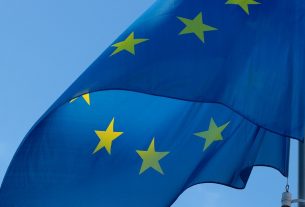The European Researchers’ Night aims to bring researchers closer to the general public and to increase awareness of research and innovation activities, with a view to supporting the public recognition of researchers, creating an understanding of the impact of researchers’ work on citizen’s daily life, and encouraging young people to embark on research careers.
The European Researchers’ Night takes place yearly, typically starting on the last Friday of the month of September. Supported main events can last up to two full days: they can start on Friday and continue the following day. Pre-events can also be organised prior to the main event in September. It is the occasion for a Europe-wide public and media event for the promotion of research careers, in particular towards young people and their families.
The European Researchers’ Night targets the general public, addressing and attracting people regardless of the level of their scientific background, with a special focus on families, pupils and students, and notably those who do not have easy access to, and thus are less inclined to engage in, STEAM or research activities.
Activities can combine education aspects with entertainment, especially when addressing young audiences. They can take various forms, e.g. hands-on experiments, science shows, simulations, debates, games, competitions, quizzes, etc. Where appropriate, engagement with educational institutions should be sought in order to encourage formal and informal science education with the aim to improve the scientific knowledge base. Activities should promote the European dimension, gender balance and inclusion in research and innovation.
One of the political priorities of the European Commission is the European Green Deal for the European Union and its citizens, with an aim to tackle climate and environmental-related challenges. Applicants are therefore encouraged to include activities relating to the European Green Deal in their events.
Each proposal should set up at least one European corner, providing general information about the European Union and how the EU funds science and education cooperation within Europe and beyond.
Involvement of researchers funded by Horizon 2020, including the Marie Skłodowska-Curie actions, is highly encouraged.
Participants can be any legal entity in the EU Member States and Horizon 2020 Associated Countries, and/or if relevant, constitute a partnership at regional, national or international level. The maximum duration of support will be one year from the starting date specified in the grant agreement, as proposals should only cover one edition of the NIGHT in 2021.
High-quality applications not retained due to lack of funding may be granted the status of associated events.
Expected Impact:
Increased awareness among the general public of the importance of research and innovation and more favourable general attitude towards its public funding
Better understanding of the key benefits that research brings to society
Reduction in the stereotypes about researchers and their profession
Increase, in the long term, of people taking up research careers
Better understanding of the impact of the European Union’s programmes among the general public


















